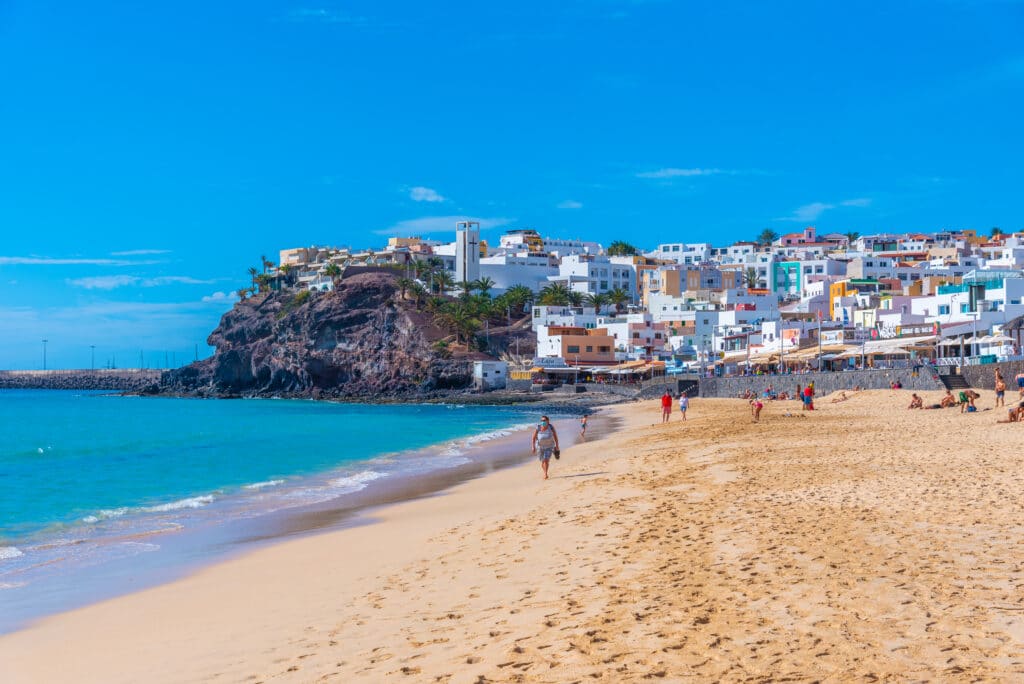Welcome back to the second part of our series, how remote working is affecting work life and private life. If you want to have a look into the first part of this series, which is about how remote work from home is affecting the work-life balance of employees, you will find the link to this at the very bottom.
In this article we have a closer look what impact traveling has on our motivation, creativity and productivity. Therefore, we are going to have a look how the concept of distance is impacting our creative cognition, we explore the benefits of breaking routines and living abroad. After this more theoretical approach we now look at how traveling is improving our health and boosts our confidence and open mind. The article ends with my personal conclusion.
Concept of distance as impact
Since many years the field of psychology is interested in the effect of geographical and temporal distance on creativity. You can find a large amount of researches in the construal level theory, which is basically stating: The closer individuals are to things, problems and ideas, the more concrete, literally and unimaginatively they think about these problems. The theory states that being far away from a problem or issue, even just thinking that you are having a distance to it, the more abstractly you can think about a solution (1).
The benefits of breaking routine
Most people know that feeling, you stare out of a car window as you are traveling a winding road of a mountain, or you are enjoying a cocktail on a beachside and this “aha” moment is striking you with its creative force and helps you solving a problem you are trying to solve for days. But why are those moments mostly coming when you are distracting yourself with something else like traveling?
According to psychologists, everyday habits and routines constrain mental thinking. Spending time in different environments and cultures is opening up our thinking, opening up unused neural networks in our brain. This respond is different if we keep our environment the same by sitting in the same office or driving the same road every day. The new inputs are more challenging for our brain and help it to be more active. Curiosity is a central human experience and the best way of increasing curiosity is to travel foreign countries and cultures.
“When adults step into a foreign, unknown culture, the firing of neural networks occurs over the entire brain. The areas of the brain that adults have for so long dampened down again become saturated with neurochemicals, and processing takes place similar to processing that occurs in a baby’s brain.” (2)

Living abroad
We found a study appearing in the Journal of Social Psychology in the article “Cultural borders and mental barriers: The relationship between living abroad and creativity” that showed those who had lived abroad performed better on openly formulated tasks, like:
- a problem that required creative negotiation
skills; - a problem that required identifying a missing
word with three clue words.
The hypothesis of the authors Maddux and Galinsky was that open-minded thinking was the main reason why these students performed better on puzzles and problems. “This type of thinking takes form in foreign countries as individuals realize that there are many different – and valid – ways of living in the world. There isn’t one right way or viewpoint, and a single issue or problem often has multiple viewpoints or solutions.” (3)
But why has living abroad such a big impact on us? Simply because it mostly comes with multiple challenges, such as figuring out transportation schedules for buses and trains, finding reasonable ways to shop groceries and cook given by the countries markets or lack of grocery
stores. There are many of these challenges which are coming by living abroad and not just by traveling for a while from hotel to hotel. The challenge is to dive into a new culture and understand the way you live in a different location. This is when we learn the most and getting the greatest impact on our creativity and productivity (1).
more confident and open minded
Creativity is something very complex to understand and made up of different set of qualities. One of these is, accordingly to a study of Julia Zimmermann and Franz Neyer, open-mindedness. In psychology there are the “Big Five personality traits” and in the following study Mrs Zimmermann and Mr Neyer tried to find out more about those traits and divided a group, one to study abroad and the other one to stay at home (7).
“Those who went abroad for an extended period were shown to have increased openness to experience when re-taking the test on returning. Meanwhile, the control group, who stayed at home, showed no such change. Openness is a key component of creativity since it allows you to explore all ideas and come up with something novel.” (5)
A lack of creativity can also come from a lack of self-confidence. A Law Professor at ECU Business School, Sam Huang, asked 500 backpackers about their confidence and how travel was affecting it. 88% of the backpackers answered that they were better now at problem solving and 89% believed that their communication skill had improved by traveling. Besides the increase of confidence, most travellers have described themselves as humbler. This is also an excellent combination for doing creative work, according to the article of Thom Brown (5).
Traveling improves your health
Traveling makes you more active. You are exploring, strolling through markets, hiking trails or even lounging at the beach. You are breathing fresh air and enjoy your new environment. And even if you were sitting all morning on your laptop working, in the afternoon the feeling of exploring new things and new places make you want to go out rather than sitting at home and watching TV (4).
Conclusion
Traveling and especially living abroad can have huge impact on our lives and well-being. Traveling makes us more active, we want to explore a new location, meet people and also dive into different cultures. This short-term impact can already relieve stress, give new input for problems or issues we try to solve and activate parts of our brain, which is in our everyday live not much used.
But the magic seems to happen in living abroad. To fully dive into a new culture, adepting to the local environment, like shopping for local groceries and understanding how life in the new location is working, is highly challenging ourselves. Here we make the most out of the experience, boost our confidence and communication skills, staying more active because we want to explore the new surroundings and get some distance to the problems we need to solve at work or in our private life.
After doing this research I just can recommend for everyone who can at least to try to live for a certain amount of time abroad. I was experiencing all these positive effects written in this article first-hand but never had the scientific proof and explanation of my feelings. Now I hope with our concept of Go Remotical to have a positive impact on many people’s lives and help them getting more creative.
This is the second part of our series, how remote working is affecting work life and private life. The final article of this series is going to merge the conclusions of the first one and this article.
Read & share
If you are interested in real life stories of people already working remotely, check out our interviews and our story blogs, where we give updates on recent events, typical days of Remoticals and other remote working topics.
Get in touch
Feel free to write us your story or experience of remote working via Facebook or Instagram. We are always keen to learn how other people handle their remote work.
(1) Construal Level Theory. In P. K. Van Lange, Handbook of Theories of Social Psychology (pp. 118-134). Washington DC: Sage Publications Ltd.
(2) https://www.allpsychologycareers.com/creativity/travel-and-creativity/
(3) “Cultural Borders and Mental Barriers: The Relationship Between Living Abroad and Creativity”;Maddux, William W.; Galinsky ,Adam D.; https://www.apa.org/pubs/journals/releases/psp9651047.pdf
(4) https://www.verywellmind.com/take-vacations-for-stress-relief-overall-health-3145274
(5) https://www.arcido.com/blogs/news/the-science-behind-how-travel-boosts-creativity
(6) https://www.theatlantic.com/health/archive/2015/03/for-a-more-creative-brain-travel/388135/
(7) https://www.perpsy.uni-jena.de/forschung/zimmermann-pedes



